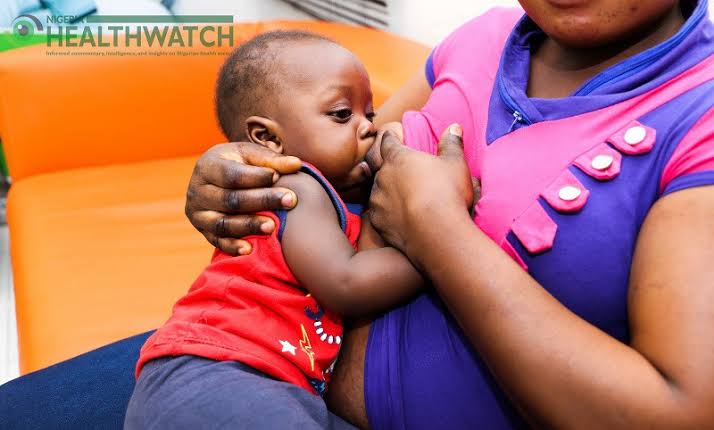Health
World Breastfeeding Week: SCI advocates review of workplace policies for breastfeeding mothers

Save the Children International (SCI), has raised concern that despite the health benefits and nutritional value of breast milk, only 9% workplace in Nigeria have policies that promote breastfeeding.
In a statement signed on Tuesday by SCI Country Director, Famari Barro,
to commemorate the 2023 World Breastfeeding Week, the organisation stated that lack of exclusive breastfeeding for children of working class women in any sector is a disservice to the right of the child to survive.

Stressing the importance of exclusive breastfeeding, the organisation called on the Nigerian government to review laws that hinder lactating mothers from practicing exclusive breastfeeding both at formal and informal settings.
This year’s World Breastfeeding Week, commemorated 1-7 August, has the theme “Enabling Breastfeeding, Making a difference for Working Parents”.
Breastmilk is the most important meal for a child after birth.
“Exclusive breastfeeding is the feeding of an infant with only breastmilk for the first 6 months of the child’s life without water or formula as directed by the World Health Organization. This is ideal for the child as breast milk contains nutrients and antibodies that protect the child from common illnesses”, the organisation said.
SCI states that Nigeria falls short on the mandate as only 29% of infants aged 0-6 months are exclusively breastfed leaving 71% of infants lacking the benefits of breast milk in their formative years.
According to them, “The Nigeria workspace forces mothers to return to work or risk their salaries or income.
According to the Global, Breastfeeding Scorecard 2022 “Protecting Breastfeeding through further investments and policy actions”, only 10% of countries meet the recommended standard of countries with recommended policies to protect, promote, and support breastfeeding.
“No country in Africa meets the National requirements for paid maternity leave as stipulated by the International Labour Organization. This percentage has hardly changed over the past eight years. The collective target for 2030 is to have at least 25% of countries following the ILO recommendation which is to have at least 18 weeks standard maternity leave.
“A child deprived of exclusive breastfeeding can suffer, malnutrition, pneumonia, infectious morbidity, childhood obesity, type 1 and type 2 diabetes, leukemia, and sudden infant death syndrome. Every child should enjoy the benefits of exclusive breastfeeding both in formal and informal workspaces. If this persist then the Breast Milk Substitute products and other foods for infants and young children – the world over – continue to undermine a mother’s ability to make an informed choice on infant and young child feeding.
“Upon their return to work, mothers also need work breaks and appropriate nursing facilities for continued breastfeeding. This encourages and helps mothers exclusively breastfeed after maternity leave”.
Famari Barro, Country Director, Save the Children International Nigeria said, “Children across Nigeria must be fed well, solely on exclusive breastmilk for the first 6-months of their lives. In emergency context, breastfeeding saves lives. When systems are disrupted, breastfeeding continues to offer nutrition security, hydration, comfort, connection, and protects babies from infectious diseases.
“Nigeria needs to rise up to the call for better breastfeeding friendly environments, both for the urban and rural settings, as well as the formal and informal working class groups of breastfeeding mothers.”
Save the Children International further urge Government, Ministries of Health and Nutrition, Information and Culture, Labour and Employment as well as other stakeholders to do more in addressing the needs of breastfeeding mothers at home, work and communities.
“Government laws and policies must support and ensure an implementation of at least 18 weeks, even more 6 months, paid maternity leave, promote exclusive breastfeeding; public health campaigns, provision of adequate nutrition and breastfeeding counselling, so that parents everywhere and at all levels can access the appropriate services and support that are critical to the success of breastfeeding.
“The 6 months paid maternity leave and 2 weeks paternity leave bill should be passed and signed into law to provide sustainable support for breastfeeding from the government.
“Government and partners need to set up mother and baby areas to ensure that mothers in refugee camps can receive adequate information, advice, encouragement, and counselling on infant and young child feeding practices. Breastfeeding support is possible regardless of workplace, sector, or contract type.
“Employers must provide maternity protections and paid entitlements to improve children and women’s health thereby increasing exclusive breastfeeding for the well-being of the child”, the organisation added.

























